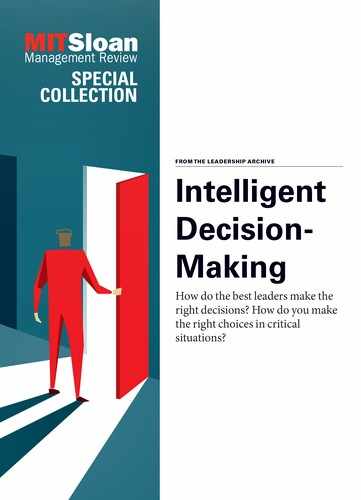0%
11Chapters
0-1Hours read
0kTotal Words
Table of Contents
- Cover
- Copyright
- Contents
- Introduction
- The New Rules For Crisis Management
- Why You Decide the Way You Do
- Staying in the Know
- Designing Trustworthy Organizations
- How to Lead During a Crisis: Lessons From the Rescue of the Chilean Miners
- Rise of the Strategy Machines
- How Scenario Planning Influences Strategic Decisions
